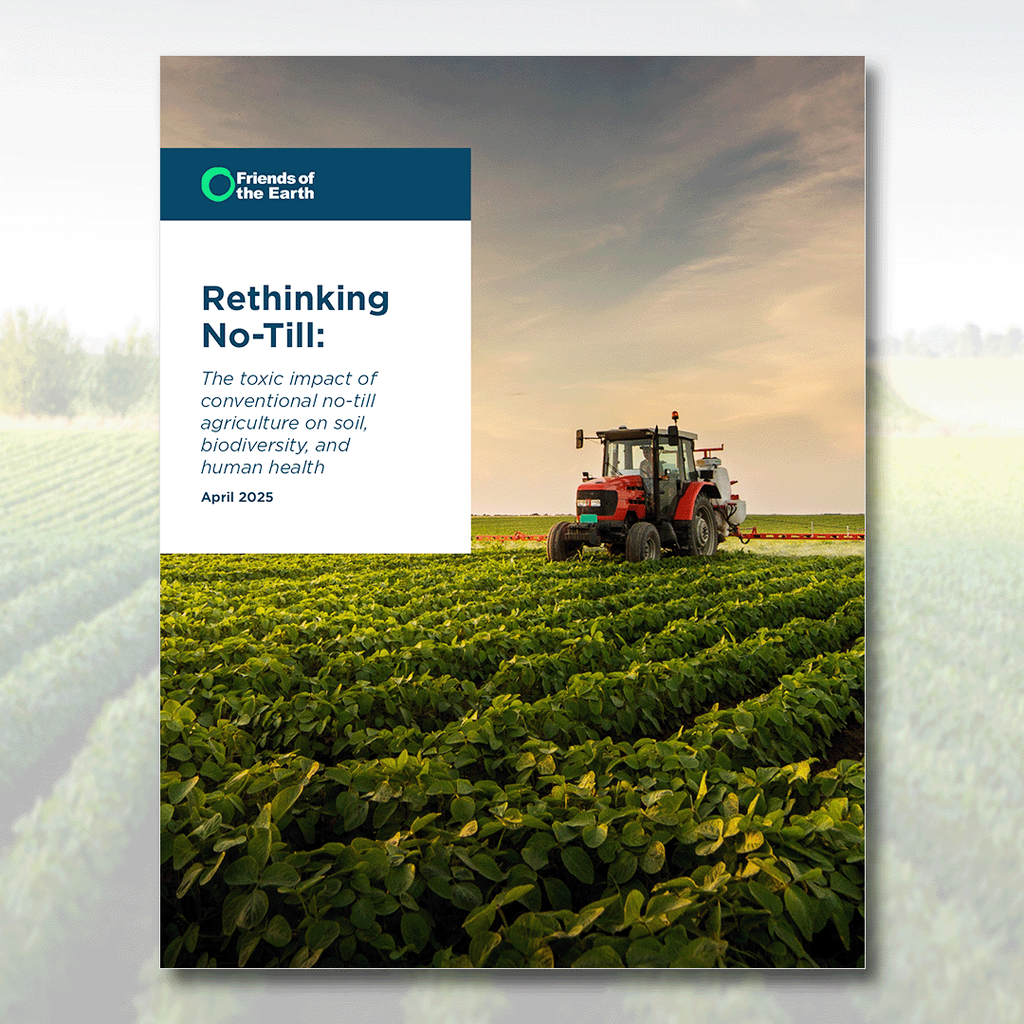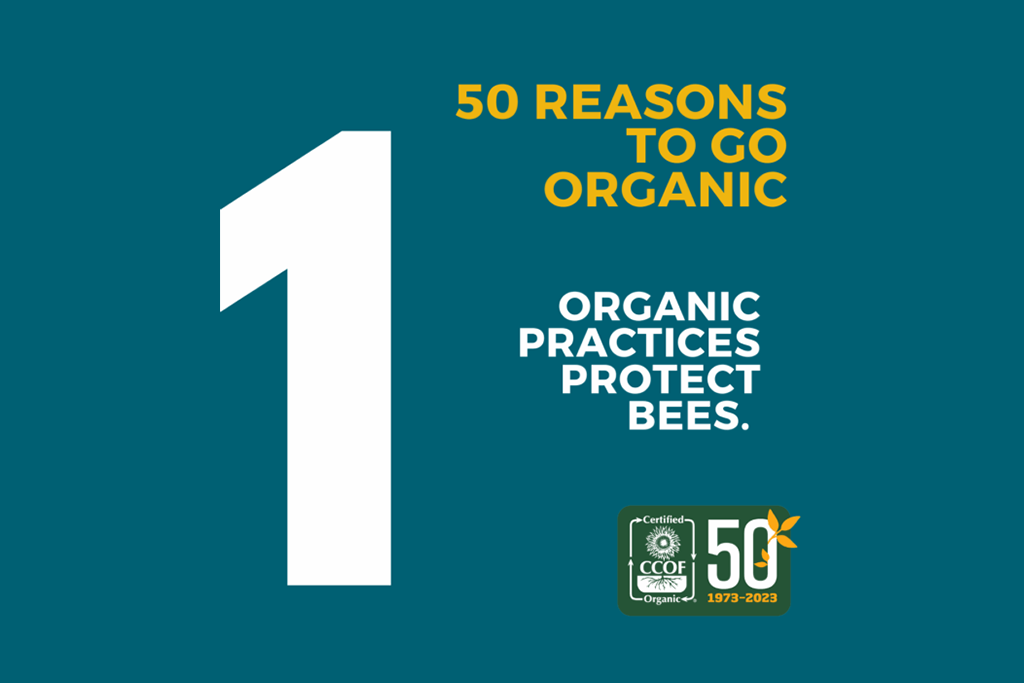Friends of the Earth has released a new report titled Rethinking No-till, which challenges the widely-held assumption that conventional no-till agriculture is “regenerative.”
The report finds that:
- The vast majority of conventional no-till depends heavily on toxic pesticides and synthetic fertilizers, with devastating impacts on soil health, human health, and the ongoing viability of farmland. In fact, a staggering one-third of the U.S.’s total annual pesticide use can be attributed to no- and minimum-till corn and soy production alone.
- Pesticide companies have promoted chemical-intensive no-till for decades, and are now calling it “regenerative” as a strategy to sell more of their pesticides and genetically engineered seeds. But chemical farming is not regenerative.
- Truly regenerative agriculture is holistic, low-input, ecological, and systems-based. Regenerative agriculture can’t be boiled down to single practices, and it must prioritize chemical input reduction. Reducing inputs can benefit soil health, biodiversity, human health, and farmers’ bottom lines. Research shows that careful tillage can be part of regenerative farming systems.
- Chemical-intensive agriculture predominates in the U.S. not through the fault of farmers, but because that is what our public policies and markets support. In order to achieve true regeneration, this needs to change. Policymakers and companies must provide conventional farmers with the support they need to get off the chemical treadmill and must invest in leading forms of regenerative agriculture like diversified organic farming.
***
Learn about Regenerative Organic Certification here.


